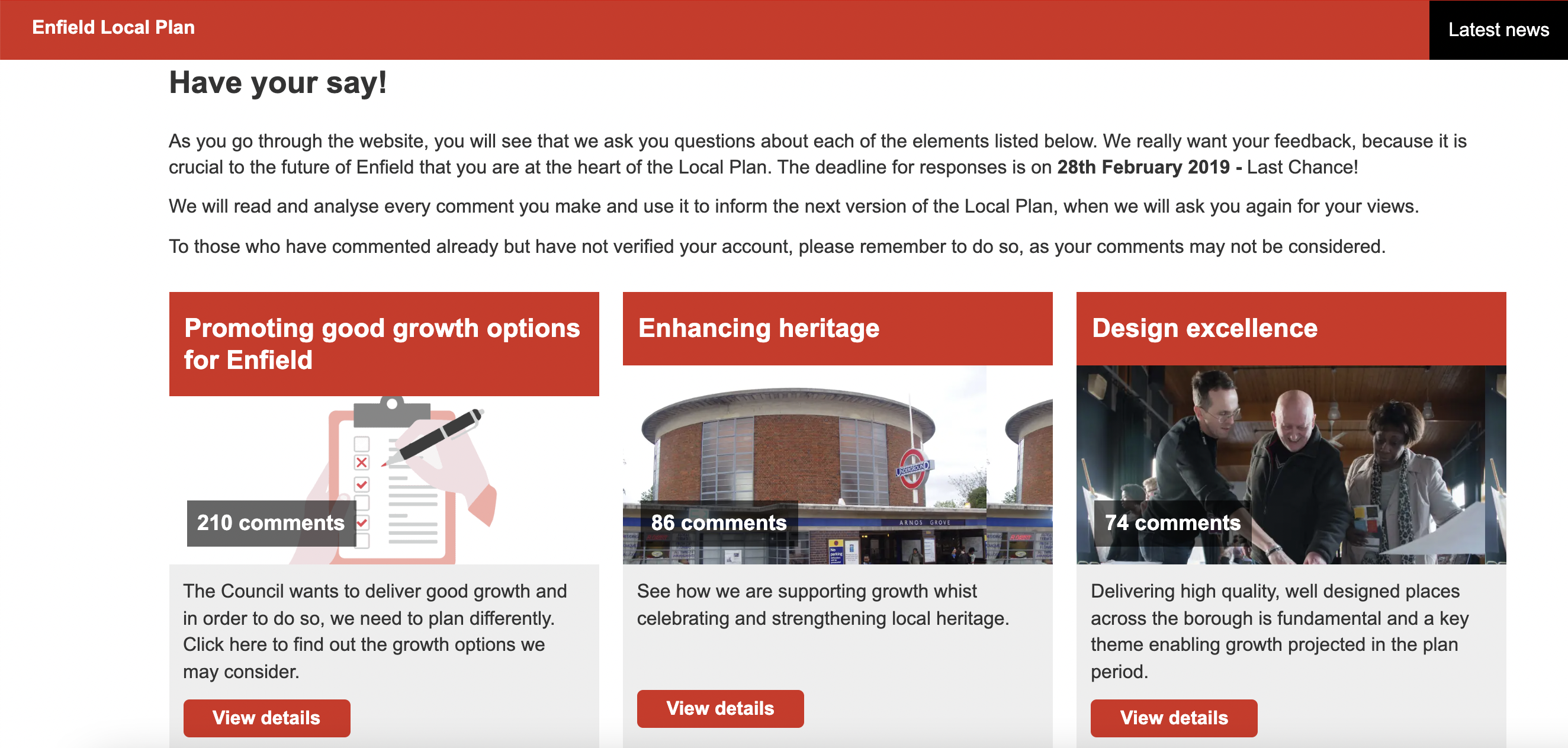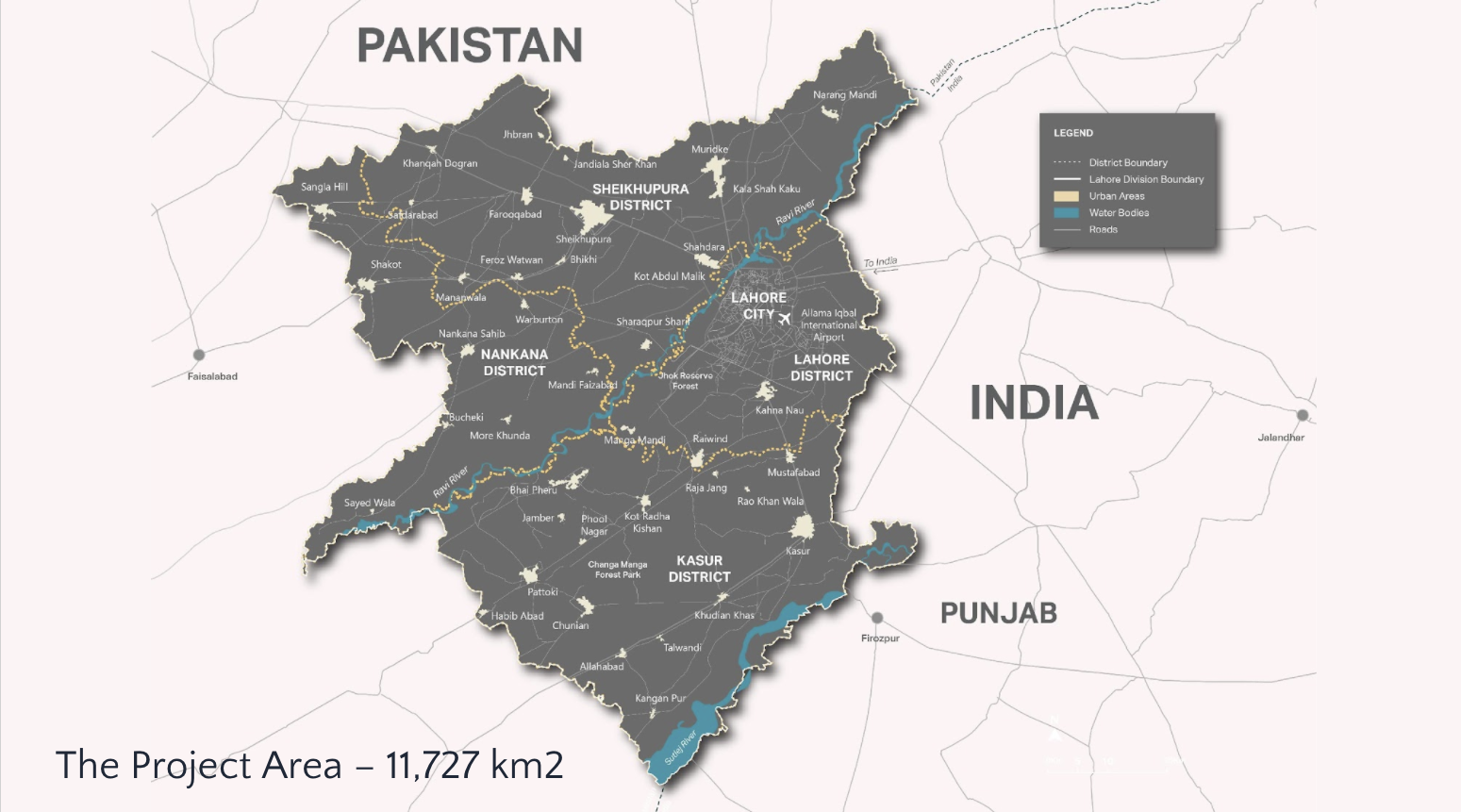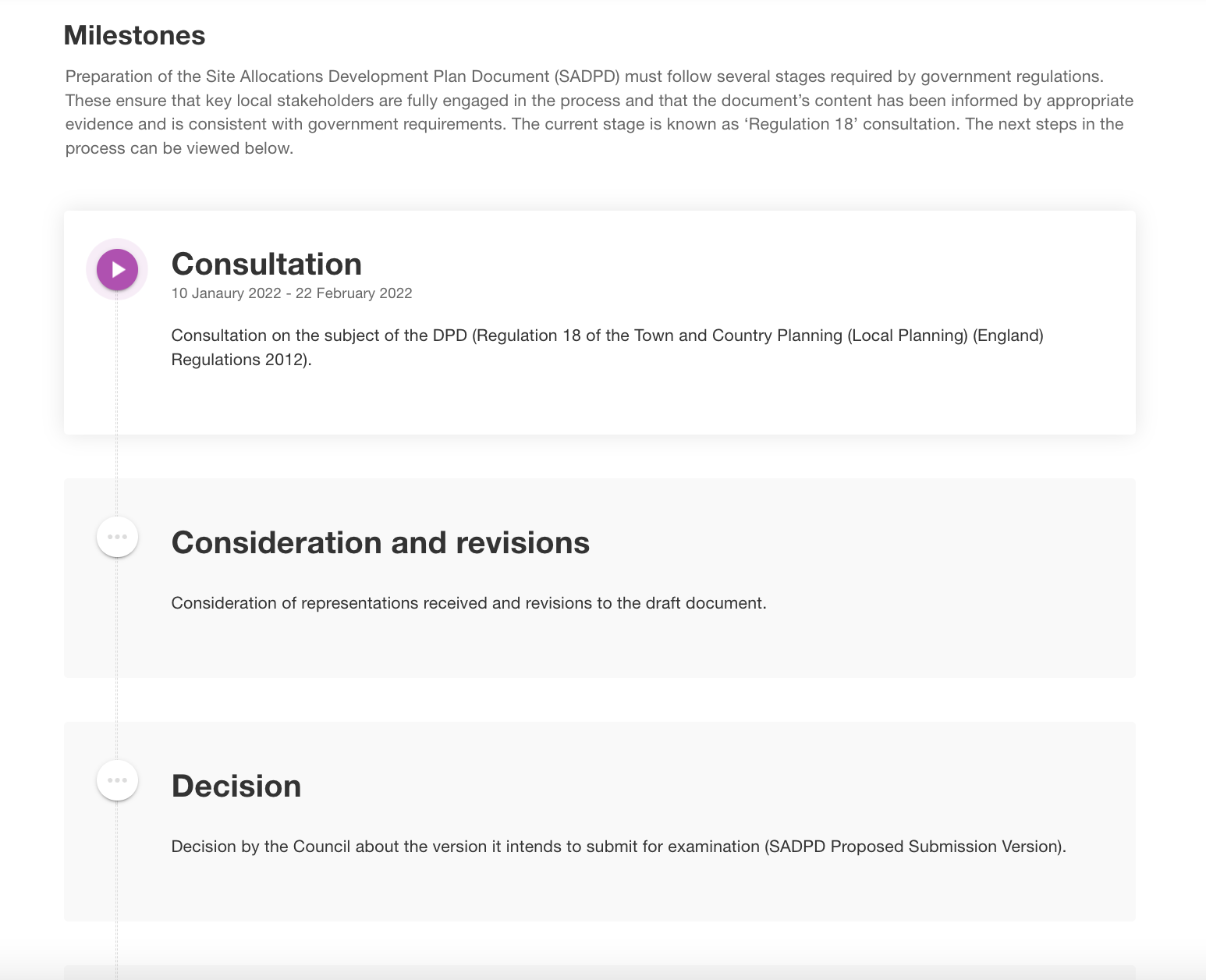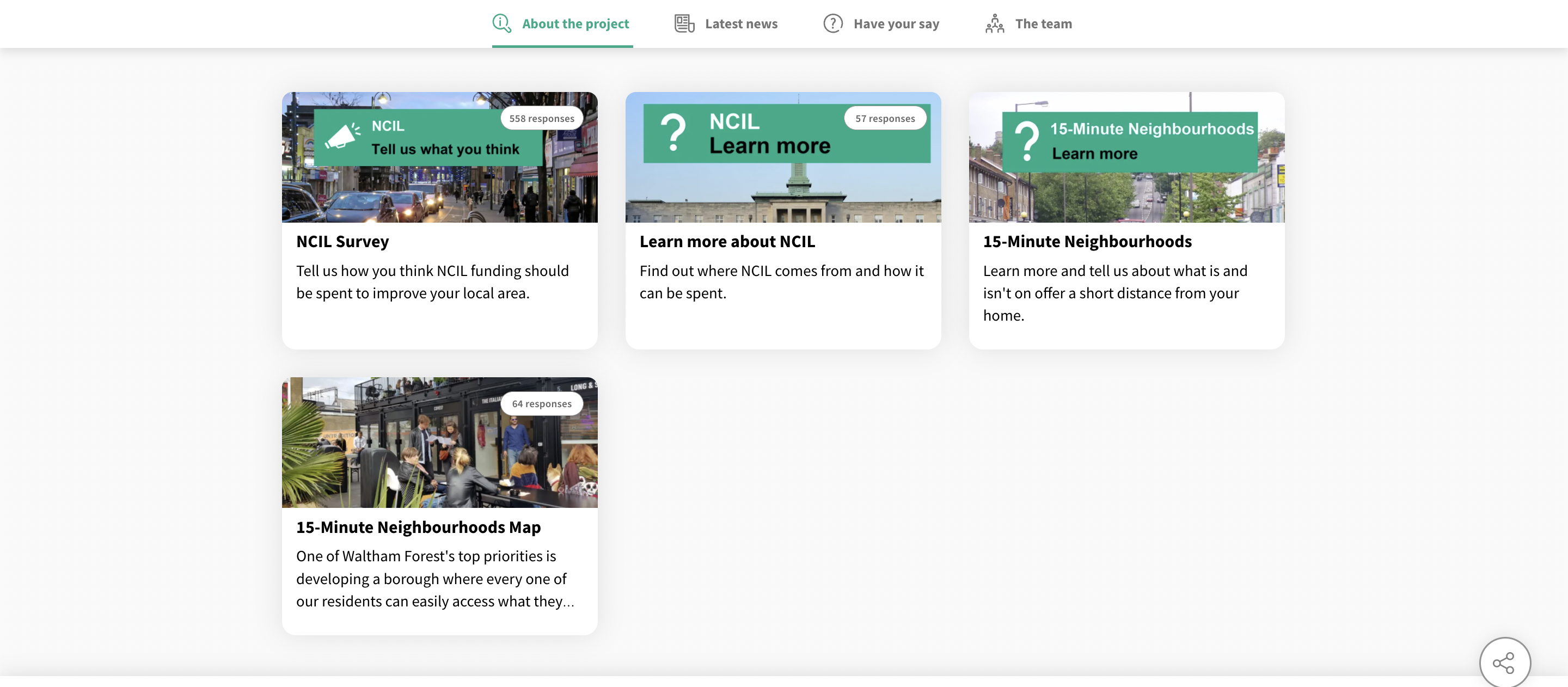Our top 5 Commonplace uses for local planning authorities

By Charlotte Cooper | 03/03/22 16:46
4 min read
Discover the top 5 things that the Commonplace platform can do to help boost engagement in your next planning project. Whether that’s a Local Plan, masterplanning, or you need to present your supplementary planning documents in a simple format, read our blog to see all the benefits a digital strategy can bring.
One of the most crucial aspects of any type of local planning project is thorough community engagement. Giving citizens the tools to have their voice heard and shape the future of the places they live, work and play is vital in creating a happy and harmonious relationship between citizen and planner.
Here are our top plan-making engagement ideas as well as a few project examples to show how place-making technology can be one of the best assets for boosting community participation.
Or see it for yourself by booking a free demo with our friendly team of experts.
1. Local Plans

Local Plans form the bedrock of how authorities build, structure and enhance their local communities. Setting out the roadmap for a place’s future development, these plans work the infrastructure guide that showcases exactly what developments will be made and when. The first stage of any Local Plan is gathering evidence from the community so the local planning authority can best divide up resources and accurately see what supporting infrastructure will be needed. The more people participate, the more accurate a plan you have- this is where a digital first engagement strategy comes in.
Let’s take a look at Enfield’s local planning website.
Their 12-week consultation period gathered the insights of the community to help inform their 2036 Local Plan.
Their engagement website consisted of a number of different project pages, each outlining ideas for the plan including:
- Community and Social Infrastructure
- Sustainable Movement and Transport
- Enhancing Heritage
- Promoting Good Growth Options for Enfield
- Promoting a Competitive Economy
To be as transparent as possible about every aspect of the plan, each page gave details about potential works around the subject with the option for the public to leave comments about what they liked or wanted to change.
To take away the confusion about what a Local Plan actually does and it’s long lasting effects, they used a detailed ‘About’ page to outline all the details. This was all on top of their in-person local plan drop-in sessions so people can talk to them directly,
Check out the full planning engagement website.
2. Masterplans

Masterplans need as much public feedback as possible to create spaces that everyone can make the most of. Mapping out growth for sometimes decades in the future, giving the local people the tools to give open and honest feedback and create a better rapport with those planners in charge is vital.
One of the biggest scale projects here is the Lahore 2050 Masterplan. Working in collaboration with the DAR group, this masterplan covers an area eight times the size of London with Lahore looking to become one of the top five biggest cities in the world by 2050! To help it become a truly global city for its citizens, the DAR group have launched 17 Commonplace feedback sites- one for each of the tehsils in the Lahore division. Each are available in Urdu, Punjabi, and English to encourage community engagement. This is on top of their public workshops and face to face consultations to try and reach as much of the community as possible.
Each site enables the public to access project information and includes integrated feedback techniques such as questionnaires, polls, and likes. The public easily have their say about the existing situation, and suggest what they want to see in the future for the tehsil where they live, work or study. This feedback constantly informs the MPLD2050 development process, ensuring it reflects the communities' aspirations for their areas.
Even now, they’re getting feedback from people with all sorts of income and education levels with the project designed to enable people from all socio economic backgrounds to have a stake in the masterplan and to understand what it means.
Find out more from Project Lead Eric Wright in our latest webinar.
3. Design Codes
Design codes are specifically designed to provide clear detailed parameters for the development of an area and, according to the government themselves, need to ‘capture and reflect the views of the local community from the outset, and at each stage in the process.’
With the National Planning Policy Framework being clear that design policies should be developed with local communities to reflect local aspirations- a clear and updated planning website is a great tool for this exact stage of development.
The framework suggests to set out a ‘vision statement’ for the code- showing exactly when and how developments will take place over the allotted time. With a planning website, this becomes much easier- Dedicated pages to news and documents can give the local community free 24 hour access to updates. If this code is to cover a large area, or several areas, you can always use our 2.0 heatmap. Simple divide the area and add informational layers to highlight different types of development that will be happening.
4. Supplementary Planning Documents

Supplementary Planning Documents (SPDs) are there to provide more detailed guidance on how Local Plan policies should be implemented, so, once again, making sure that they have the support of the community behind them is paramount. After all, if they’ve already input on shaping the Local Plan, then the community will most likely want a say on exactly how those ideas will be implemented once they come to fruition.
For example, Lambeth council is currently seeking views on the Draft Lambeth Site Allocations Development Plan Document (SADPD), which includes proposed site-specific planning policies for 14 sites across Lambeth to guide future development. The local community can easily leave comments on all aspects of the document by using an interactive heatmap. Each site has a dedicated page where they can leave a comment. Once adopted, the SADPD will become part of the statutory development plan for Lambeth and will help deliver new homes and workspaces, secure benefits for communities and improve the quality of places and the environment.
Full access to SDPs can also be seen in a range of other projects like Lewisham small sites SPD and Cyber Central Garden Community.
5. CIL

Last but certainly not least, community engagement is also a crucial part of assessing priorities in Community Infrastructure Levies (CILs). By law, residents must have a say in how CILs are spent to improve local areas, so (like with all planning engagement websites) making sure that all information is clear and easy to access is crucial.
Let’s take a look at Waltham Forest’s planning engagement website, focussed on agreeing funding for projects that meet community priorities through their Neighbourhood Community Infrastructure Levy. The first thing that is made clear on their website is exactly what an NCIL is as why Waltham Forest needs community input in the first place.
They also made a priority to explain about their 15-minute neighbourhood plans. A strategy for improving transport and accessibility, they decided to use two dedicated pages to gather insight. The first uses a video to explain the concept of a 15-minute neighbourhood while also offering a simple survey to test community sentiment, while the other has a heatmap where the community can leave comments and suggestions on exact areas. Together, it helps take away the mystery surrounding planning terms that the average citizen may not understand while also making the ability to leave a comment and get involved much simpler.
See the full planning engagement website.
Want to see what Commonplace can do to boost participation in your next planning project? Our friendly team will be more than happy to show you! Click below to book a bespoke demo and we’ll walk you through how our features can benefit you exactly.
.png)

